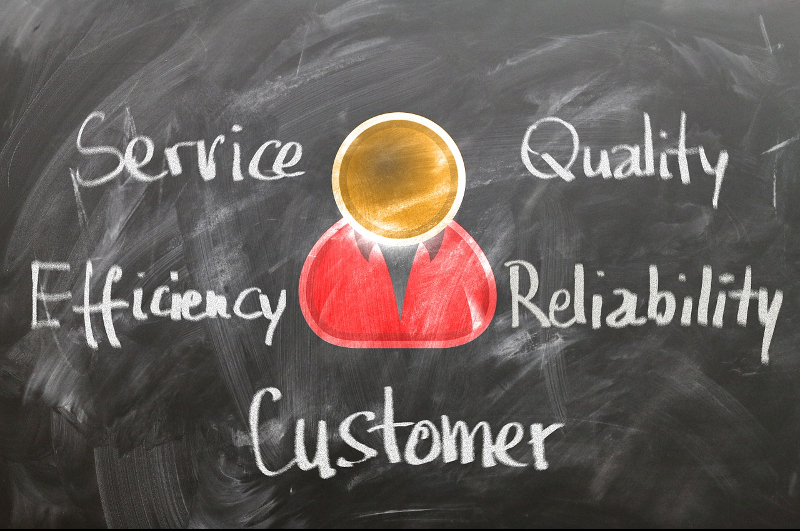3 red lines that you should not cross upon implementing a CRM in your company

When a company decides to implement a CRM solution within one or several of its departments, it normally has a clear objective for the change. This change is manifested in many aspects: the way of doing things, the transformation in the processes, the communication channels with the customers, and a long etcétera.
Despite this, without realising it, once the search for a CRM solution begins, many companies forget this objective and cling to the idea of finding the tool that best adapts to their “current way of doing things”.
The seems obvious on the surface, but not so much if we take into account that we started from an idea of change and transformation of the processes as a necessary starting point so that the CRM becomes a really useful and profitable tool for the company. For this reason and others that I will explain below, one can put into danger the real competitive advantage that exploiting this tool to the utmost signifies:
-
‘Do not search for the CRM that seems like you: the reason for a CRM is to change’
The essence of a CRM is no other than to simplify some processes, automate others and, in short, remove the work load from the employee. This work is often composed -to a great extent- of merely procedural tasks of little added value. And it is here where the number of errors committed increases, the time between processes is prolonged and the interdepartmental communication becomes more deficient.
For this reason, it is necessary to avoid replicating the current work processes of each company within the CRM, where manual work passes to automatic and where, with half of the steps to follow, we arrive at the same objective, offering the best service to our customers.
On this point, letting consultants specialised in CRM solutions advise you is vital in order to shape the interdepartmental processes that are the basis of the daily work in any Company.
-
‘Changing fashion is easy; changing a CRM, not so much’
Fashions often really “take off”, although it is true that over time all of them end up disappearing and being substituted by new ones.
When we decide to look for a CRM solution for our business, we always find ourselves with a product that we can classify as “the CRM in fashion” at that specific moment.
A CRM is not a system that once implemented is changed from one year to another. The fact that it entails an implementation project and consultancy to put it in effect, makes the cost of the licences to not be the only thing to take into account.
For this reason it is important not to make the decision on which CRM we choose thinking only about what one hears in the sector at a certain time. Variables such as the facility of integration and customisation of the platform, the usability, the recognitions granted by experts in the sector and of course the price are essential factors to take into account when making the best decisión.
-
‘A CRM is not everything; a CRM is a CRM’
Sometimes, people interested in acquiring a CRM solution start with an idea that is not well adapted to reality, they think of a CRM as a single solution, capable of managing absolutely all the processes and activities typical of a Company.
I can tell you now that this is not so. The essence of a CRM is to manage the relations with the customers. Therefore, its focus, in principle, is above all commercial. It is the suitable tool for registering all the interactions that from the sales department are being carried out with our customers (calls, meetings, tasks, e-mails) and in this way it can monitor and guarantee much more efficiently the closing of numerous business transactions and their subsequent invoicing.
Thus, a CRM can incorporate a module of sending campaigns and the design of e-mails, allow the interaction with some Social Network Services (SNS) from the CRM itself, integrate with chat or call center platforms, managed incidents, serve as support for the customer assistance department and a long etcetera. But in any of these cases, we must have it clear that a CRM is not a specialised solution in these areas and that, although all its functionalities in this area are useful and serve for the purpose for which they were created, being a leader in these tasks is not the objective of a CRM.
Therefore, it is not correct to demand that the CRM carries out, for example, monitoring of SNS as a SNS monitoring platform would do as is the case of Hootsuite, specialised in this area. Neither can it offer you the same complexity of processes that a UAC -user assistance center- has, etc.
A CRM fulfils very well its main function and it is an acceptable solution in the rest of areas that are not its main competence.
In conclusion, friends, it is important to have it clear that a CRM was not created to be a “Swiss Army knife”. Although it is true that it is a highly customisable tool that allows an adaptation to any business model, you have to make an effort to reflect on the current processes and try to simplify them and make them more agile with the new tool.
We always take into account that acquiring a CRM is a medium- or long-term decision for which it is not advisable to let yourself be carried away by the fashions of the product of the momento.
I hope that this post has been of interest to you. If you want to have more advice on how to carry out your future CRM project, do not hesitate to contact us.
Patricia G. Duque – CRM & BI Sales Representative
pduque@intelligencepartner.com
C/ Gobelas 21, 1ª planta
28023 Madrid
T.+34 911 51 71 02


